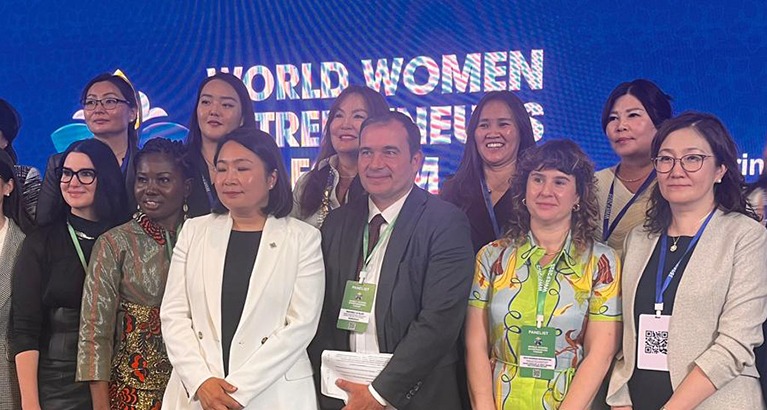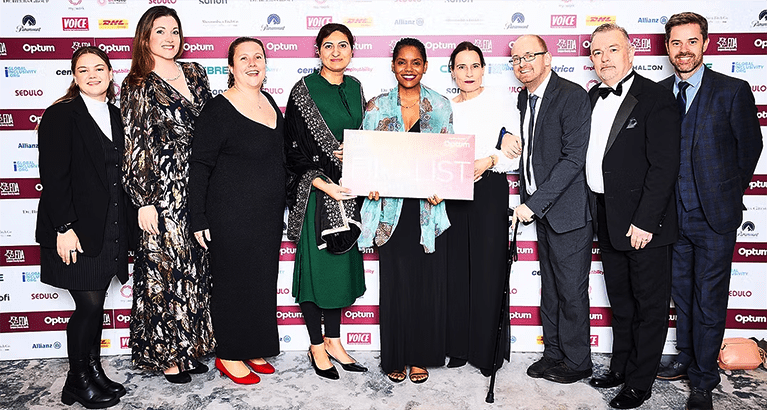Greater access to finance could help women in Asia and around the world create more businesses and generate employment, Jennifer Waller Martin, Executive Director of the Executive MBA (EMBA) programmes at Cambridge Judge Business School, told the World Women Entrepreneurs Forum in Mongolia.
“Female-led companies are not just businesses: they are engines of job creation, community development and social progress,” Jen said in her keynote address entitled Building Resilience: Navigating Economic Shocks and Challenges. Regarding access to finance, she cited a recent Global Founders Forum Group Report showing that female-only founding teams received just 2.3% of the $289 billion global venture capital investment last year.
Forum supported by other Asian countries and international organisations
The 25-26 August Forum in the Mongolian capital of Ulaanbaatar was opened by the President of Mongolia, Khürelsükh Ukhnaa, and was supported by senior officials from Japan, Korea, the World Trade Organization and other groups.
The Forum was also attended by Monique Boddington, Management Practice Associate Professor and Director of the Master in Entrepreneurship programme at Cambridge Judge. As part of their visit, Jen and Monique met in Mongolia with 120 promising entrepreneurs as well as ministers for trade, foreign relations and culture.
A need for better analysis of why female founders lack finance
Monique was a panellist on a Forum session that addressed Fostering Women’s Entrepreneurial Leadership. She argued that closing the finance gap requires a sharper diagnosis of why capital remains out of reach, and why after so many initiatives do the numbers not change and women continue to receive such small percentages of financing available.
She noted how decisions on financing are often influenced by who gets counted as high potential or labelled as risk adverse, when women are often taking social as well as financial risk. While more women are starting and leading businesses, they are still lagging in terms of scaling these ventures.
Monique called for targeted, state-appropriate support that helps a diverse range of founders – not only to start ventures, but also to sustain, grow and scale their businesses. She added that we need to show that women have founded high-potential growth ventures, and thus help, over time, shift stereotypes around women entrepreneurs.
World Trade Organization programme to benefit female-led businesses in Mongolia

At the Forum, it was announced that 60 women-led businesses in Mongolia were chosen as beneficiaries of the Women Exporters in the Digital Economy (WEIDE) Fund launched last year by the World Trade Organization and the International Trade Centre. The cohort of micro, small and medium-sized enterprises was announced in partnership with the Mongolian National Chamber of Commerce and Industry.
Women lead about two-thirds of small- and medium-sized companies in Mongolia, and have created such firms as organic skincare brand Lhamour, which is now sold internationally. Yet research presented at the Forum shows that if women participated in entrepreneurship at the same rate as men, then global GDP could rise by $5 trillion, Jen told the audience.
“The future of entrepreneurship needs to be inclusive,” Jen said. “It is not just about men or women – it is about everyone working together to unlock creativity, innovation, and opportunity. To the women in this room: your ideas and leadership are needed more than ever. To the men in this room: your support and partnership are essential.”
Featured faculty
Monique Boddington
Management Practice Associate Professor
Related content
World Women Economic Forum 2025
“WEIDE Fund selects women beneficiaries in Mongolia as implementation gathers momentum.” WTO.org, 25 August 2025
MSt in Entrepreneurship
A programme for nascent to experienced entrepreneurs, our part-time, 2-year Master in Entrepreneurship is designed to help you launch, scale or grow your business venture.





